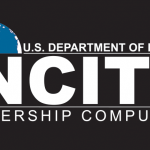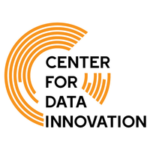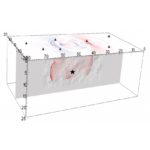The U.S. Department of Energy’s Innovative and Novel Computational Impact on Theory and Experiment (INCITE) program is now accepting proposals for high-impact, computationally intensive research projects in a broad array of science, engineering and computer science domains. Proposals must be submitted between April 10 and June 14, 2024. Open to researchers from academia, industry and […]
INCITE Call for Proposals for Access to Leadership-Class Supercomputers Open through June 14
DOE INCITE Program Seeks 2024 Proposals for Science and Engineering at Leadership Computing Facilities
April 10, 2023 — The U.S. Department of Energy’s (DOE) Innovative and Novel Computational Impact on Theory and Experiment (INCITE) program is accepting proposals for high-impact, computationally intensive research campaigns in science, engineering and computer science domains. Proposals must be submitted between April 10, 2023 and 8 pm ET on June 16, 2023. To submit […]
ALCF Announces INCITE Hackathon, Applications Due March 8
The Argonne Leadership Computing Facility (ALCF), together with NVIDIA and OpenACC, is co-organizing a hybrid hackathon to help research teams prepare for the upcoming 2024 INCITE call for proposals. Hackathon dates: April 18: Team/Mentor virtual meeting from 09:00 – 11:00 AM CT April 25: Virtual meeting 9:00 AM – 5:00 PM May 3-5: The event […]
INCITE Issues Call for Papers for HPC-intensive Research Proposals
INCITE, the Department of Energy’s Innovative and Novel Computational Impact on Theory and Experiment program, has issued a call for proposals for high-impact, computationally intensive research projects through June 17, 2022. For more information, read the INCITE announcement. For details on proposal requirements, visit the INCITE website. INCITE’s open call provides an opportunity for researchers to pursue […]
INCITE Program Awards HPC Time to 51 Open Science Projects
The U.S. Department of Energy’s Office of Science announced allocations of supercomputer access to 51 high-impact computational science projects for 2022 through its Innovative and Novel Computational Impact on Theory and Experiment, or INCITE, program. These awards, which will pursue transformational advances in science and engineering, account for 60 percent of the available time on the […]
DOE INCITE Program Calls for Proposals by June 18
April 12, 2021 — The U.S. Department of Energy’s Innovative and Novel Computational Impact on Theory and Experiment (INCITE) program is seeking proposals for high-impact, computationally intensive research campaigns in a broad array of science, engineering and computer science domains. The deadline is June 18, 2021. INCITE’s open call provides an opportunity for researchers to […]
INCITE Awards HPC Time to 51 Research Projects on ORNL, Argonne Supercomputers
The U.S. Department of Energy’s (DOE) Office of Science announced allocations of supercomputer access to 51 high-impact computational science projects for 2021 through its Innovative and Novel Computational Impact on Theory and Experiment (INCITE) program. These awards, which will pursue transformational advances in science and engineering, account for 60 percent of the available time on the leadership-class supercomputers at DOE’s Argonne National […]
Supercomputing the San Andreas Fault with CyberShake
With help from DOE supercomputers, a USC-led team expands models of the fault system beneath its feet, aiming to predict its outbursts. For their 2020 INCITE work, SCEC scientists and programmers will have access to 500,000 node hours on Argonne’s Theta supercomputer, delivering as much as 11.69 petaflops. “The team is using Theta “mostly for dynamic earthquake ruptures,” Goulet says. “That is using physics-based models to simulate and understand details of the earthquake as it ruptures along a fault, including how the rupture speed and the stress along the fault plane changes.”
DOE INCITE program seeks proposals for 2021
The DOE INCITE program has issued its Call for Proposals. “Open to researchers from academia, industry and government agencies, the INCITE program is aimed at large-scale scientific computing projects that require the power and scale of DOE’s leadership-class supercomputers. The program will award up to 60 percent of the allocable time on Summit, the OLCF’s 200-petaflop IBM AC922 machine, and Theta, the ALCF’s 12-petaflop Cray XC40 system.”








